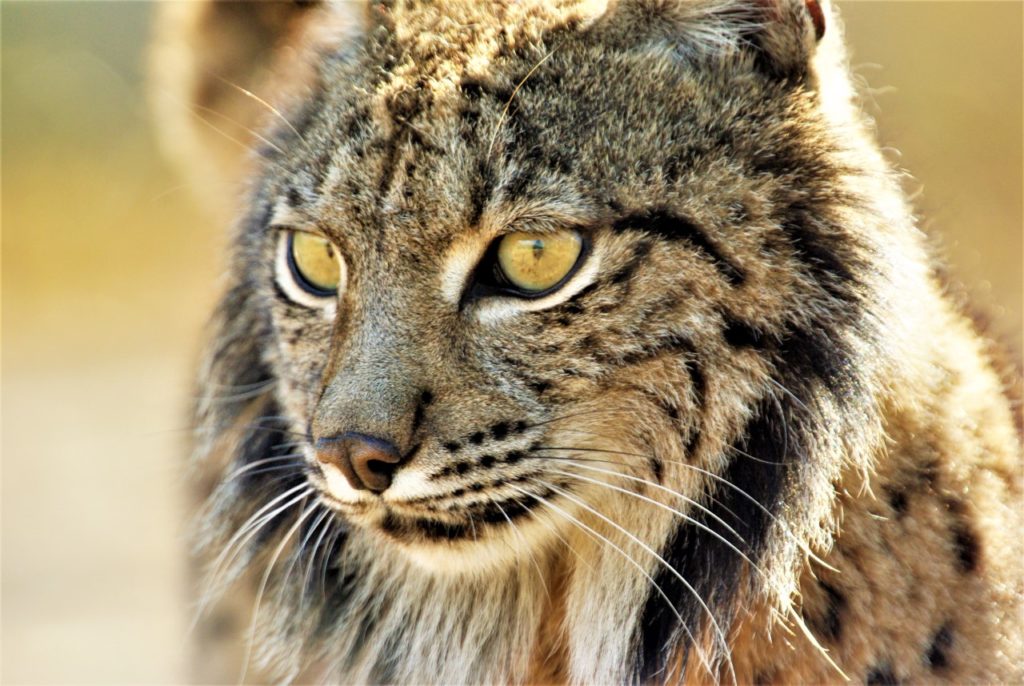Nine more Iberian lynxes were born in the Algarve, in just 35 hours, between the 9th and 11th of April. The babies of the lynx Fresa, Juncia and Juromenha came to join the two that had been born last week and increase to 11 the number of offspring born in 2020 at the National Center for the Reproduction of the Iberian Lynx (CNRLI), in Silves.
On Thursday, the 9th, at 18:56 pm, 11-year-old Fresa gave birth to a litter of four puppies, the result of her pairing with Drago. Fresa is one of the founding females of CNRLI, a center managed by the Institute for the Conservation of Nature and Forests (ICNF), created in 2009. She was born at the Breeding Center of El Acebuche, in Doñana, and despite having been spared the annual reproduction , having been diagnosed with kidney problems in 2010, «to date has given birth to 20 cubs, of which 10 have been reintroduced into the wild».
«It is their third litter of four cubs that, if developing as expected, will be able to raise their total contribution to the recovery of the species in nature to 14 animals. Drago, founding male of the CNRLI and born in 2007 in El Acebuche, has fathered 29 cubs at the CNRLI. Of these, 14 were reintroduced into the wild, and the 4 born will now be able to raise their total contribution to 18 cubs reintroduced in the Iberian Peninsula. Mother and cubs are doing well, they are developing normally», revealed the ICNF, the entity responsible for the CNRLI, which is financed by the Portuguese State and the company Águas do Algarve, within the scope of environmental compensation measures for the construction of the Odelouca Dam.

On Friday, the 10th, at 4:48 am, «Juncia began her calving, which would eventually result in 3 cubs, after her pairing with Fresco, founder male of the CNRLI and born in 2010 in the same litter as the female Fresa».
Juncia, born at the La Olivilla Breeding Center in 2012, arrived at the CNRLI in 2016. «It is her second litter at the CNRLI, having produced 3 pups in 2017, which were reintroduced into the wild. These 3 new offspring can raise their total to 6 offspring invested in the recovery of the species in its natural habitat. Fresco has already contributed 25 offspring, of which 16 have been reintroduced. These 3 new offspring will be able to increase their total contribution to the 19 reintroduced animals», according to the ICNF.
24 hours later, Juromenha gave birth to two offspring, the result of her mating with Madagascar. «Juromenha is the first female born in the CNRLI to give birth within the Conservation Program Ex Situ of the Iberian Lynx. It is also one of the first two Iberian lynxes that were artificially bred by the CNRLI technical team, having survived the abandonment by its mother with sister Janes, soon after birth in 2012. Biznaga, one of the emblematic females of the CNRLI and that he will have reached the end of his reproductive life, then accepted both offspring to finish his education, teaching both his daughters to hunt and to behave like an Iberian lynx. His first two surviving daughters have already reproduced within the Ex Situ Program, with Juromenha being responsible for the reintroduction of 3 cubs, which could meanwhile reach 5, with the cubs born in 2020».
Madagascar, the father of the two offspring of Juromenha's litter, was born in 2015 in the wild, in the population of Doñana, having been integrated into the Ex Situ Conservation Program. «He arrived at the CNRLI in 2016 and is currently the most genetically valuable male in the Conservation Program Ex Situ and he is already the father of 8 cubs at the CNRLI, 2 of which were retained for genetic importance and replacement of broodstock for the future and 4 were reintroduced into nature».
This year it was paired with Juromenha, but also with Era, “who will have a calving date on April 18th and will, as a result, be the most genetically important litter of 2020 in the Program. The result of your pregnancy test will be known next week».
On April 6th, as the Sul Informação reported – and showed, since the birth can be seen in our newspaper – the female Jabaluna gave birth for the third time, this time “two apparently healthy cubs and a cub that was born with little vitality and would eventually die immediately after giving birth. The two surviving offspring are now continuing their normal development».
Since 2009 and by the end of 2019, 122 lynxes had been born, 89 of which survived and 69 were reintroduced in their natural habitat, only in this maternity hospital, located in the parish of São Bartolomeu de Messines, in Silves, one of the poles of an Iberian network for the recovery of the Iberian lynx.
This network was created to save an endangered species that was once critically endangered.
Help us to do the Sul Informação!
Contribute your donation so that we can continue to make your journal!
Click here to support us (Paypal)
Or use our IBAN PT50 0018 0003 38929600020 44


















Comments